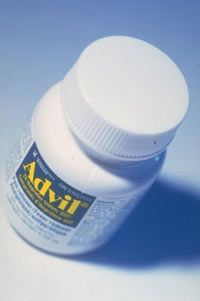The body responds to diuretic drug therapy in several different ways that can lead to diuretic resistance. Some of these responses cause the body to retain sodium and water in the short term (rebound), and some increase sodium and water retention in the long term (the braking phenomenon).
Short-term responses: The half-life of a diuretic drug in the bloodstream determines how often it must be administered. Since the half-life of most loop diuretics is on the order of hours, and they are sometimes administered only once a day, their effectiveness can be gone before the patient receives the next dose. When one dose has worn off, the kidneys may respond by aggressively retaining sodium. This rebound effect can last several hours and may even counteract the diuretic effect of the previous dose.
The action of a diuretic drug to increase the elimination of sodium in one segment of the kidney may result in the delivery of an increased load of sodium to downstream portions of the kidney, which then increases sodium reabsorption.
Long-term responses: The effectiveness of loop diuretics may decline over time during their long-term administration, as the body slowly adapts to their effects. This complex process, called the "braking phenomenon," is due to changes in the structure and function of the kidney itself, activation of the sympathetic nervous system and changes in several hormone pathways. These are all ways that the body tries to counteract the effect of the loop diuretic.
Changes in structure and function of the kidney can occur in the portion downstream from the segment where loop diuretics act. These changes, caused by increased delivery of sodium in this area over a period of time, can result in decreased effectiveness of diuretics.
When treating diuretic resistance, it's important for the patient to restrict daily consumption of fluids, follow a low-sodium diet and avoid taking nonsteroidal anti-inflammatory drugs (NSAIDs).
Other approaches include changing the dose or the timing of diuretic therapy. Because of the short duration of loop diuretics, individual doses given at intervals can cause rebound sodium retention between doses. The continuous administration of loop diuretics by continuous infusion loop diuretic therapy may be more effective than individual doses -- this is an option for patients with moderate to severe heart failure.
Another way to overcome diuretic resistance is to use more than one type of diuretic (such as a combination of thiazide and loop diuretics), because different types of diuretic drugs act upon different parts of the kidney and their combination may produce an improved diuretic response. For many patients, however, despite these strategies, diuretics eventually stop working.
When diuretics fail to relieve the fluid overload, patients may receive a procedure known as ultrafiltration.
To learn more about diuretics, take a look at the links on the next page.


